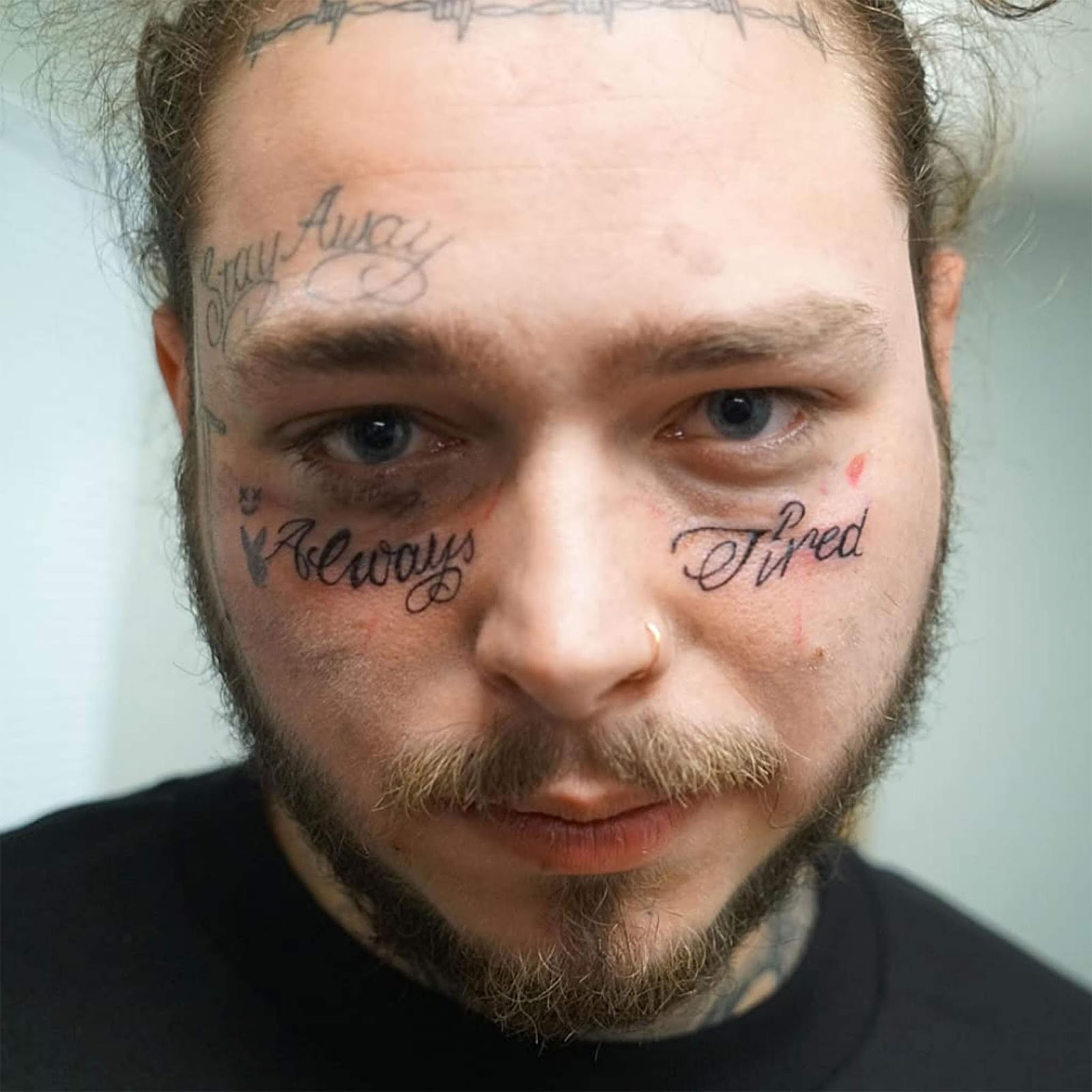In the world of hip-hop, face tattoos have become a bold statement of identity and self-expression. Among white rappers, this trend has gained significant traction, often reflecting their unique experiences, struggles, and artistic vision. The juxtaposition of their race with the traditionally urban culture of rap adds an intriguing layer to the phenomenon, making it a compelling subject for discussion.
As we delve deeper into the realm of white rapper face tattoos, we uncover the stories behind the ink, the motivations driving these artists, and the cultural implications of their choices. From cautionary tales to symbols of resilience, these tattoos are more than just art; they are markers of personal journeys that resonate with fans and the broader community.
In this article, we will explore the lives of some prominent white rappers who have chosen to adorn their faces with tattoos, examining how these markings contribute to their public personas and the messages they convey. Join us as we navigate the intricate landscape of white rapper face tattoos and the cultural narratives they represent.
Who are the Notable White Rappers with Face Tattoos?
When it comes to white rappers with face tattoos, a few names stand out prominently in the industry. Artists like Machine Gun Kelly, Post Malone, and Lil Xan have all made headlines for their distinctive facial ink, each carrying their own story and significance. These tattoos often serve as a canvas for their emotions and personal histories, speaking volumes without uttering a word.
What Motivates White Rappers to Get Face Tattoos?
The motivations behind getting face tattoos vary widely among white rappers. For some, it's a form of rebellion against societal norms, while for others, it serves as a reminder of their struggles or a tribute to loved ones. The choice to get tattooed on the face, a location often viewed as permanent and bold, often signifies a commitment to their art and lifestyle.
Are Face Tattoos a Form of Cultural Appropriation?
One of the ongoing debates in the hip-hop community centers around cultural appropriation. Critics argue that white rappers adopting the style of face tattoos may trivialize aspects of a culture that historically has been marginalized. However, many of these artists assert that they are paying homage to the genre and its roots, striving to create their unique identities within the hip-hop scene.
What Are the Common Themes in White Rapper Face Tattoos?
Face tattoos among white rappers often reflect a variety of themes, including:
- Personal Struggles: Many tattoos symbolize battles with mental health, addiction, or personal loss.
- Artistic Expression: Tattoos can serve as a form of creative outlet, showcasing an artist’s personality and style.
- Tributes: Some artists choose to honor loved ones or important milestones in their lives through their ink.
What Are the Reactions to White Rapper Face Tattoos?
The reactions to white rapper face tattoos can be polarizing. On one hand, fans often celebrate the authenticity and vulnerability that these tattoos represent. On the other hand, critics may view them as a gimmick or an attempt to gain attention. The diversity of opinions underscores the complexity of the conversation surrounding body art in the music industry.
How Do Face Tattoos Impact a White Rapper's Career?
Face tattoos can significantly influence a rapper's career in various ways:
- Brand Identity: Tattoos can become a part of an artist's brand, setting them apart from their peers.
- Public Perception: While some fans may embrace the tattoos, others may be deterred by the perceived permanence and rebellion associated with them.
- Opportunities: Face tattoos can affect collaborations, endorsements, and other professional opportunities within the industry.
Biography of a Prominent White Rapper with Face Tattoos
One of the most notable white rappers with face tattoos is Post Malone. Known for his eclectic style and genre-blending music, Malone has several tattoos on his face that have sparked both admiration and criticism.
| Attribute | Details |
|---|---|
| Name | Post Malone |
| Birth Date | July 4, 1995 |
| Birth Place | New York City, New York, USA |
| Genre | Hip-hop, Pop, Rock |
| Notable Tattoos | “Always Tired” under his eyes, barbed wire on his forehead |
| Albums | Stoney, Beerbongs & Bentleys, Hollywood's Bleeding |
What Can We Learn from the Stories Behind White Rapper Face Tattoos?
The stories behind white rapper face tattoos often reveal deeper truths about identity, struggle, and resilience. They remind us that art can serve as a powerful tool for expression and connection, transcending boundaries and challenging societal perceptions. By understanding the narratives behind the tattoos, we can foster a greater appreciation for the artists and the cultures they represent.
In conclusion, the phenomenon of white rapper face tattoos is a multifaceted subject that invites us to consider the intersections of culture, identity, and artistry. As more white rappers embrace this trend, we can expect continued dialogue about its implications and significance within the larger hip-hop community. Whether viewed as a bold statement or a cultural appropriation, these tattoos undoubtedly contribute to the rich tapestry of modern music and self-expression.
Also Read
Unveiling The Life Of Nick Foles' Wife: A Journey Of Love And SupportDiscover The Allure Of @quinnfinite OnlyFans: An Unforgettable Experience
Alejandra Arzate: A Journey Of Passion And Purpose
Unveiling The Life Of Ed Helms' Wife: A Journey Into Their Love Story
Discovering The Life Of Rivers Cuomo's Kids: A Journey Through Family And Music
Article Recommendations
- 1230857 Tyler Perry Net Worth Age Height House Wife Son
- Thay Ksada
- La Freeway Protest
- Oleksandr Zinchenko
- Tiffany Link Earrings
- 1534693 Piece Female Characters Deserve Attention
- Josh Allen Old Tweets
- Kristy Mcnichol
- 1470855 Zack Lugos Biography Age Height Net Worth Girlfriend Brother




